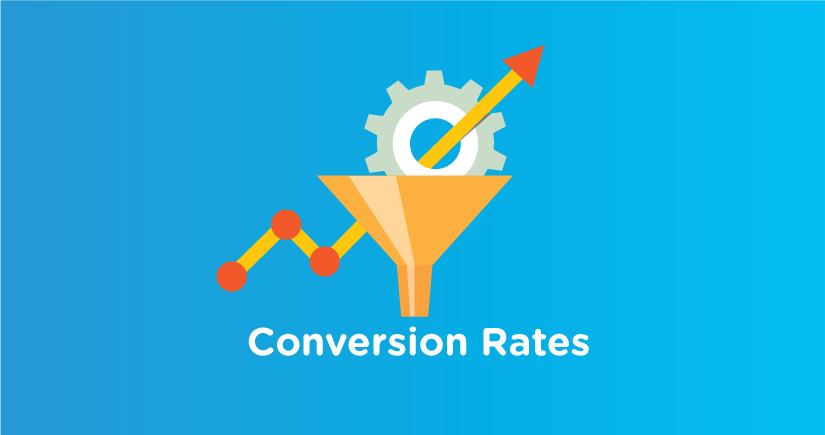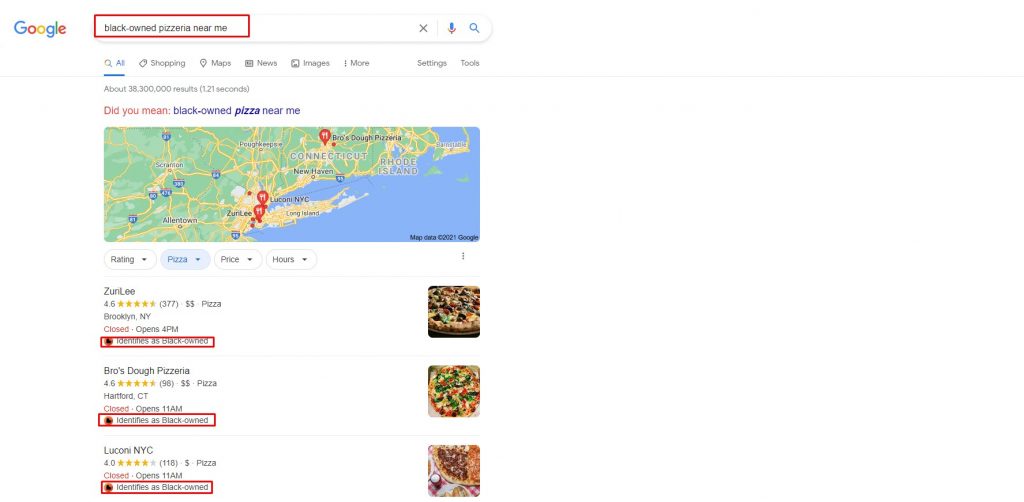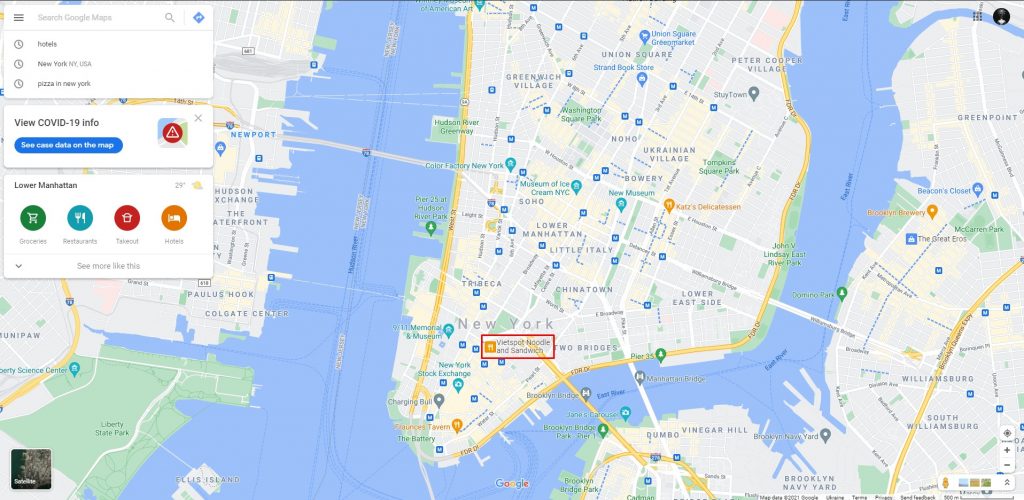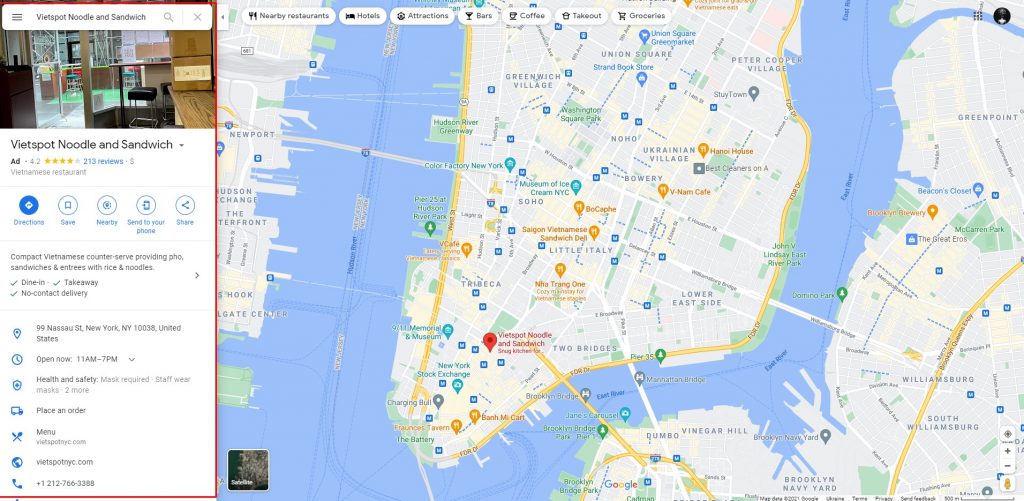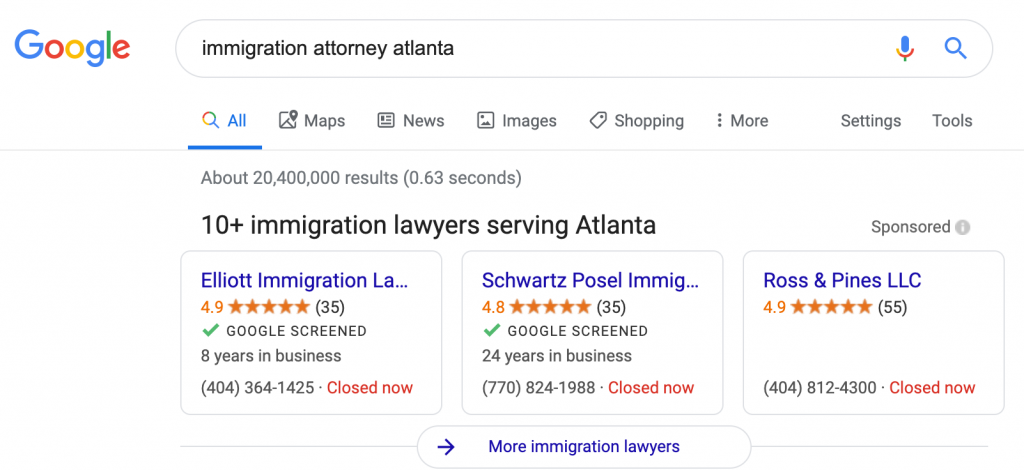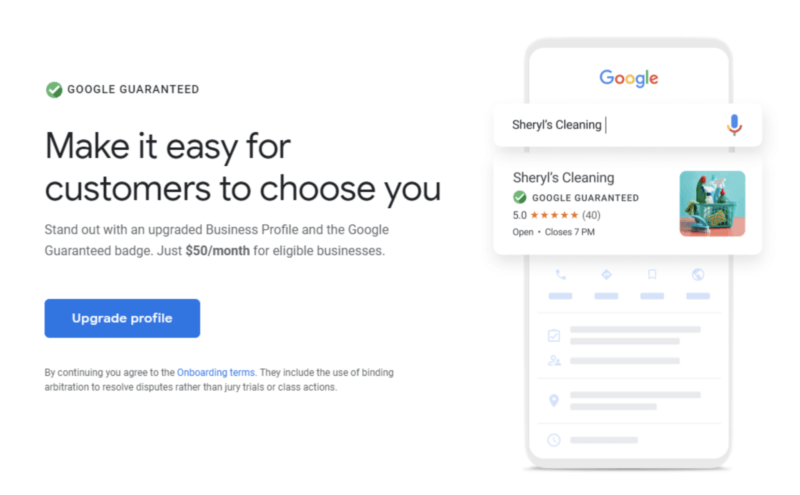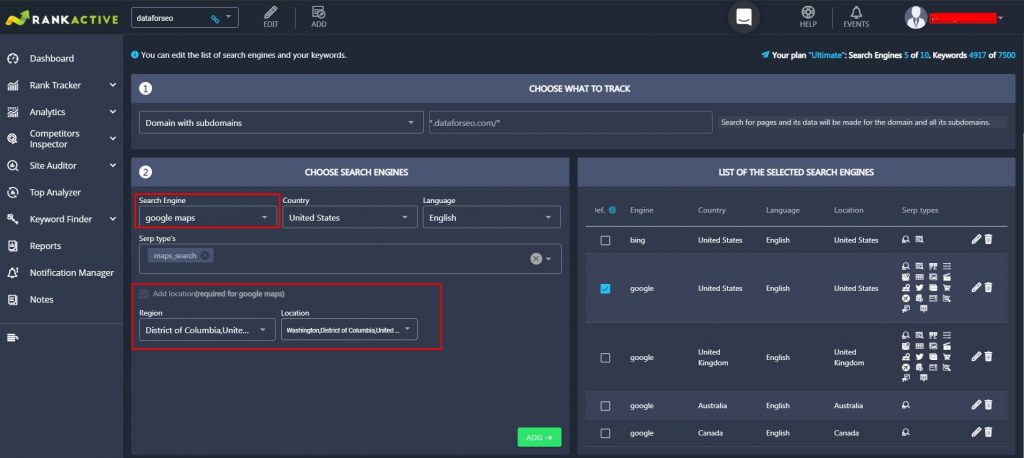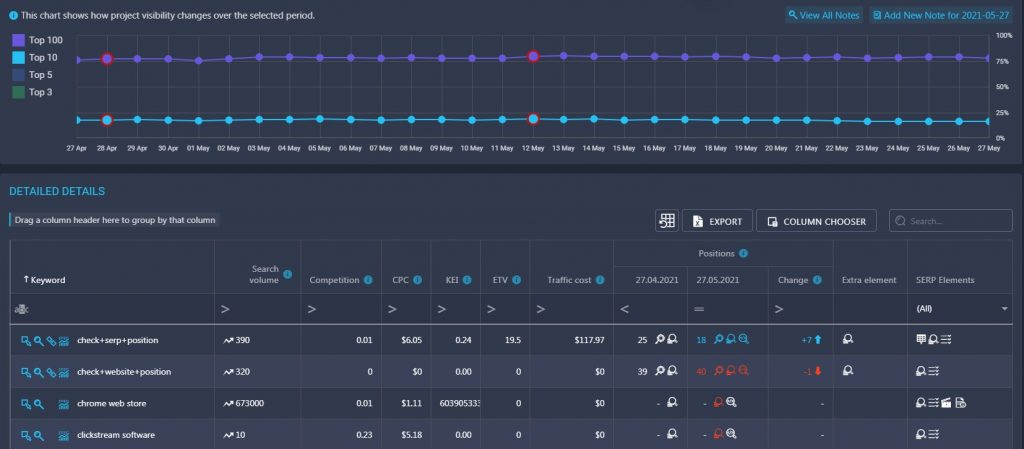Local SEO Trends: How Local Search Evolves Over The Years
27 May 2021 Leave a comment ALL-HANDS SEO, LOCAL SEO
About 46% of all searches on Google have local intent. Moreover, 76% of shoppers looking for a local service will visit a company within 24 hours, and 28% will make a purchase. That’s why having a business in Google My Business listings is essential for every savvy business owner.
However, creating and verifying a Google My Business listing isn’t enough. To prosper in the ever-changing world of local SEO, you have to keep your eye on the most recent trends in the industry and adapt to them timely.
To help you with it, we would like to describe the most prominent events in local search lately. So in the following article, you’ll learn :
- Why conversion rates are becoming more prioritized than rankings
- How Google adapts to the biggest world events and how they affect local SEO
- What Google is doing to monetize local search
We hope you will enjoy our blog post and find a way to use this information for your benefit.
There is a tendency in local search that conversion rates are becoming more prioritized while rankings take a back seat. We think it is happening for two reasons:
- You can do a lot to improve conversion rates, while there isn’t much to be done to increase rankings
- Positions are not so important when it comes to local search
Let us explain.
As you probably know, the proximity factor and the relevance of a business category to a searcher’s query are still primary ranking signals. The thing is, there is nothing you can do about it.
If you have a business physically located, say, in Brooklyn, you won’t appear in local listings for someone searching for similar companies in the Bronx. Search results will vary from street to street, from one street corner to another, and a searcher will always get results closest to their current location.
Even though it’s impossible to always appear on top of local listings, you can do your best to convince searchers to choose your place when it shows up among others.
As we mentioned above, positions are less important when it comes to local search. You see, most local searches have buyer intent: that means a person searching for some establishment nearby usually wants to purchase some product or service. When people plan to buy something, they tend to become more selective.
Remember the last time you bought something online. Did you just visit the top-ranking website and make a purchase? No, we bet you had compared several stores and chose the one that offered a lower price, faster delivery, and so on.
That’s what people usually do when deciding which option to choose. Therefore, even if your business ranks fifth while your competitor ranks first in the Google My Business listing, you may still receive more sales, assuming that you offer a better product or service.
That’s why conversions are becoming the number one priority for experts. And if you want to compete properly, you should also bring conversion rates to the forefront.
According to Whitespark’s survey, the top 10 ranking conversion factors in GMB are the following:
Thus, to convert more, you should:
- Encourage your customers to leave reviews. For example, you might offer a discount or some bonus in exchange for a positive review.
- Enable GMB messaging and reply to user inquiries timely. Google has recently improved its messaging feature and added it to desktop, making communication with customers even more convenient.
- Set proper work hours and complete your GMB listing as much as you can. Complete listings convert better as they provide more useful information to customers, saving them from contacting you for help. Less friction equals a higher chance of a conversion.
- Share Google My Business posts regularly. That is a good way to inform customers about any changes in your business, which is crucial during the COVID-19 pandemic. Moreover, Google has recently added COVID-19 type posts that are always displayed above regular posts.
- Create a Q&A section and answer users’ questions. That way, you won’t have to answer the same questions over and over again. Moreover, users might find answers to their questions in your Q&A section, which will save them from contacting you and asking for help.
While we respect the authority of experts who selected the most important conversion factors, we still think their list is incomplete. There are at least three other signals critical for conversion rates that weren’t mentioned above:
- Pricing. If your competitors offer similar products and services for a lower price, searchers will likely choose them even if your listing ranks higher.
- Quality of product photos. Having high-quality product images is critical, especially if you operate in the food industry, sell paintings, or offer other visually appealing products.
- Specified GMB attributes. Sometimes a single missing attribute beсomes a deal-breaker. For example, if you have a restaurant without a wheelchair entrance, wheel-chair bound people will likely search for places with the wheelchair-accessible entrance attribute. Thus, your restaurant may not even appear in their search results.
Speaking of attributes, Google seems to never stop adding them to its Google My Business platform. Some of these attributes reflect the most prominent world events, and that’s what we would like to discuss in the following paragraphs.
2020 was rich in events: the beginning of the COVID-19 pandemic, multiple bushfires in Australia, stock market crash, Black Lives Matter protests, the successful launch of the first private spacecraft — you name it.
Some of the most prominent events change the world, which has a reflection in local SEO.
Let’s take Black Lives Matter protests, for example. After multiple protests took place across the US, Google noticed a surge in online searches for Black-owned businesses. People wanted to express their support by purchasing products and services from companies owned by black people. To help searchers find such companies, Google introduced the Black-owned GMB attribute.
So now, businesses can identify themselves as black-owned and appear in search results for people deliberately searching for black-owned companies.
Just adding this attribute alone helps black business owners increase their visibility and conversions.
You see, when you add the Black-owned attribute, it doesn’t mean that you begin to rank only among black-owned businesses. You still rank among other companies from your category and start ranking among black-owned ones in addition to that. Thus, the more attributes you specify, the higher your visibility in local search should become.
Please note. While it may seem that adding as many attributes as possible is a good idea, you should still add only the ones that are relevant to your company. For example, if you add the wheelchair-accessible entrance attribute while not having such an entrance, people will report you, which may result in the suspension of your listing.
As we said earlier, Google constantly adds new attributes to Google My Business, so you should keep an eye on them and add the relevant ones to your listing.
Now let’s talk about the COVID-19 pandemic. It has affected businesses in multiple ways, causing them to close, reopen again, constantly change their working hours due to quarantine measures, and so on. To help companies cope with the ever-changing situation in their countries, Google developed many pandemic-related features, including:
- COVID-19 type posts
- Health and safety attributes (mask required, staff get temperature tests, staff wear masks, and so on)
- Warning messages in GMB listings (e.g., hours or services may differ due to COVID-19)
- Changes to the Temporarily closed label (it no longer impacts rankings in local listings as many businesses may temporarily close due to quarantine in a given country)
- Takeout/Delivery/Temporarily Closed Labels to Map Pins
The search giant does its best to help businesses stay in touch with their customers during these tough times. It constantly adapts to our ever-changing world, making our life easier, and that’s what we love Google for.
However, it also doesn’t forget to make money by monetizing local search, which brings us to the next point of our discussion.
For those who struggle with getting leads from local search, Google can offer a boost in exchange for money. Even though Google started earning bread and butter from Google My Business and Google Maps ads long ago, the search engine continually figures out new, more sophisticated approaches to monetize local search. Throughout the last several months, we’ve noticed that:
- Brand-new promoted pins appeared in Google Maps
- Local Services ads became widespread
- The demand for Google Guaranteed / Google Screened badges increased
Let’s discuss each point in more detail.
New promoted pins in Google Maps
Don’t get us wrong — promoted pins are by no means a new feature. However, in 2020, Google introduced new square-shaped promoted pins in addition to regular ones. Their unique shape makes them stand out and immediately catch a user’s eye.
When a user taps or clicks on a promoted pin, Google Maps adds it as a stop on the user’s route and opens up additional information about a promoted establishment.
Given that over a billion people use Google Maps, having a promoted pin in the right place at the right time can bring you massive foot traffic.
The widespread of Local Services ads
As people started spending more time at home due to COVID-19, Google noticed a 50% increase in searches for local services (e.g., carpet cleaning, fridge repair, and so on). To help more users book such services directly in search results, Google decided to expand its Local Services ads.
Local Services ads are sponsored business listings that show up for service-oriented keywords.
Initially designed for home service advertisers in only a few cities in the US, they eventually spread into many countries. Starting from September 2020, Local Services ads are available in the USA, Canada, Germany, UK, France, Austria, Belgium, Ireland, Italy, the Netherlands, Switzerland, and Spain for multiple business categories.
Local Services ads are shown for users in your area, and you only pay when you receive a call directly through the ad. Moreover, if something is wrong with the call (for example, a caller immediately hangs up), you can identify it in the Dashboard, and Google won’t charge you for that call.
Local Services ads can be an effective and relatively cheap instrument for generating leads for your business. If shown along with the Google Screened or Google Guaranteed badge, they will immediately earn the trust of your prospects.
Increase in demand for Google Guaranteed / Google Screened badges
Google Guaranteed and Google Screened Badges are initially designed for Local Services ads. Since Local Services ads have become more widespread recently, it’s no wonder we see an increase in demand for Google Guaranteed and Google Screened badges.
Basically, Google Guaranteed and Google Screened check marks indicate that a company has gone through a rigorous screening process, including a background check, license check, and insurance verification. Depending on the industry, there may be additional checks required to receive a badge. You can find the complete list of requirements by category on this Local Services help page.
While the screening process for acquiring the Google Guaranteed and Google Screened badge is the same, these programs are different. Namely, Google Guaranteed offers a money-back guarantee for unsatisfied customers. For example, if a customer isn’t happy with your product or service, Google may reimburse them up to the amount paid to you (there is a lifetime limit per customer, depending on the region).
The Google Screened program doesn’t offer any money-backs and is available only for a few categories. Google Screened is open to law, financial planning, and real estate industries, while Google Guaranteed is available to appliance repair, auto glass and car repair, electricians, HVAC, lawn care, plumbers, and roofing categories. Google Guaranteed is now also available for upgraded GMB listings.
Both Google Guaranteed and Google Screened cost 50$ per month. And now we can foresee your question: is it worth it?
Well, if you’re struggling with getting your prospects to trust you, the Google Screened / Google Guaranteed badge may solve your problem. You see, Google is a giant company with a good reputation. In fact, it is one of a few brands that managed to turn its business name into a verb. We no longer search for information — we “google it.”
Throughout more than 20 years of Google’s existence, we have come to trust this search engine. We use Google to search for relevant information online, book hotels, order food, see weather forecasts, buy digital goods, and so much more. We know that Google cares about its reputation, and those who care about their reputation are highly selective about what they recommend.
In our opinion, Google Guaranteed and Google Screened badges give your potential customers peace of mind, resulting in higher CTR. Therefore, if you can pay 50$ for your prospects’ peace of mind, why not do that?
These are the most notable local search events we have seen throughout the 2020-2021 years:
- Conversions are taking the front seat as more and more experts realize that it’s much more productive to focus on conversion rates rather than rankings
- The most prominent world events reflect on local SEO, and Google does its best to adapt to the ever-changing world and make our life easier by adding new features and GMB attributes
- While making our lives easier, Google doesn’t forget to monetize local search and make money
After reading this article, you might get the impression that local rankings don’t matter anymore.
No, that was not our point.
While you can’t impact the proximity factor and the relevance of your business to a searcher’s query, there are still many other ranking signals you should carry about. So never forget to monitor your rankings and check what’s going on with your local company’s positions.
Using RankActive’s Rank Tracker, you can discover your business rankings in Google Maps for the specified location. All you have to do is add Google Maps to your list of the selected search engines and choose a location you want to track your positions in.
After that, you can visit the Detailed view section to see detailed information about your local rankings.
Our tool can show you how your rankings have changed over the specified time frame, so you will always know which local SEO strategies bring you fruits and which ones only damage your efforts.
Sign up to RankActive now and monitor your local rankings for 14 days for free.
Tags: Google Maps, Google My Business, local business, local search, local seo, RankActive, RankTracker
Like this article? There’s more where that came from.
- 5 Questions to Ask Yourself Before Paying for Rank Tracking Software
- 5 Serious Mistakes Beginner SEOs Make and How to Fix Them
- Why We Use Google’s New Link Attributes and You Should Too
- Title and Description in 2021: Why Google Rewrites SEOs’ Meta Tags
- What We Should Learn From Google’s “About This Result” Feature


